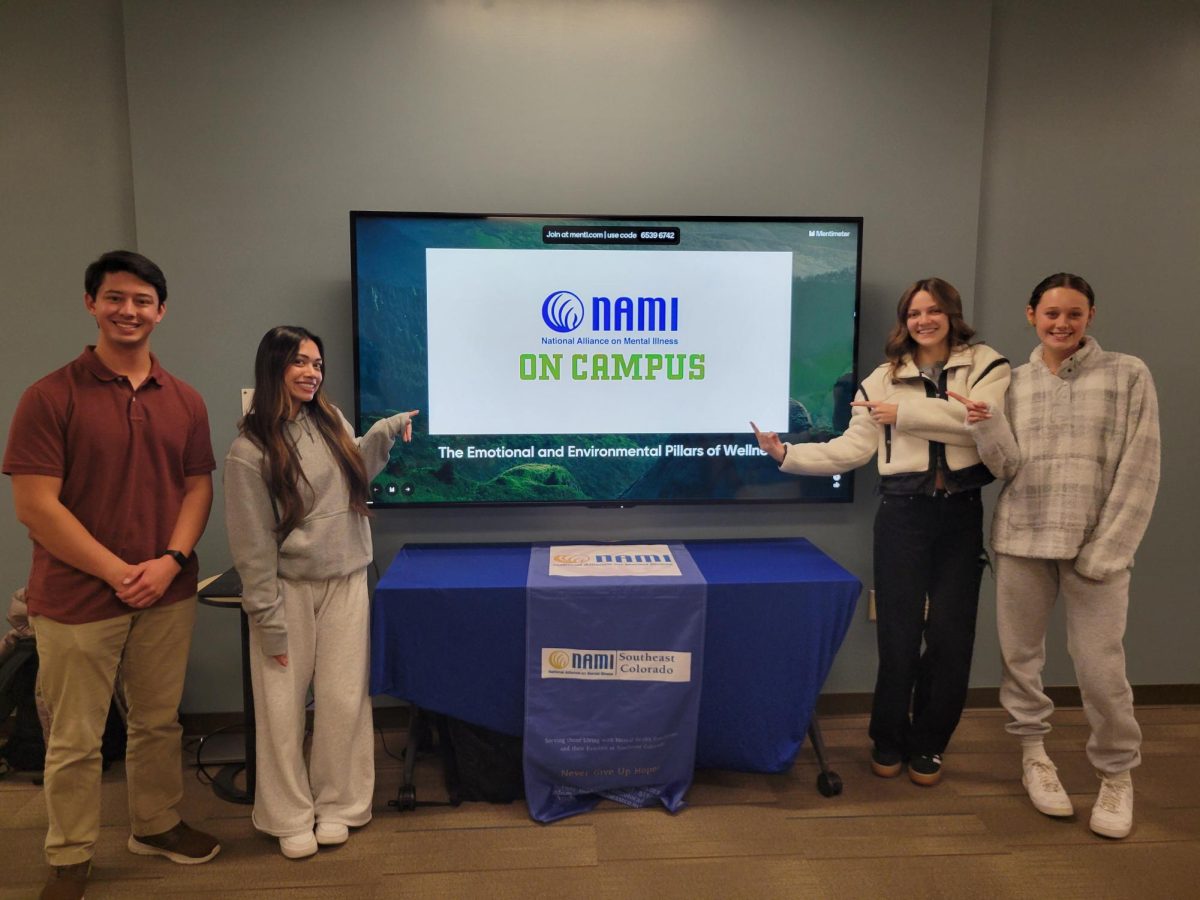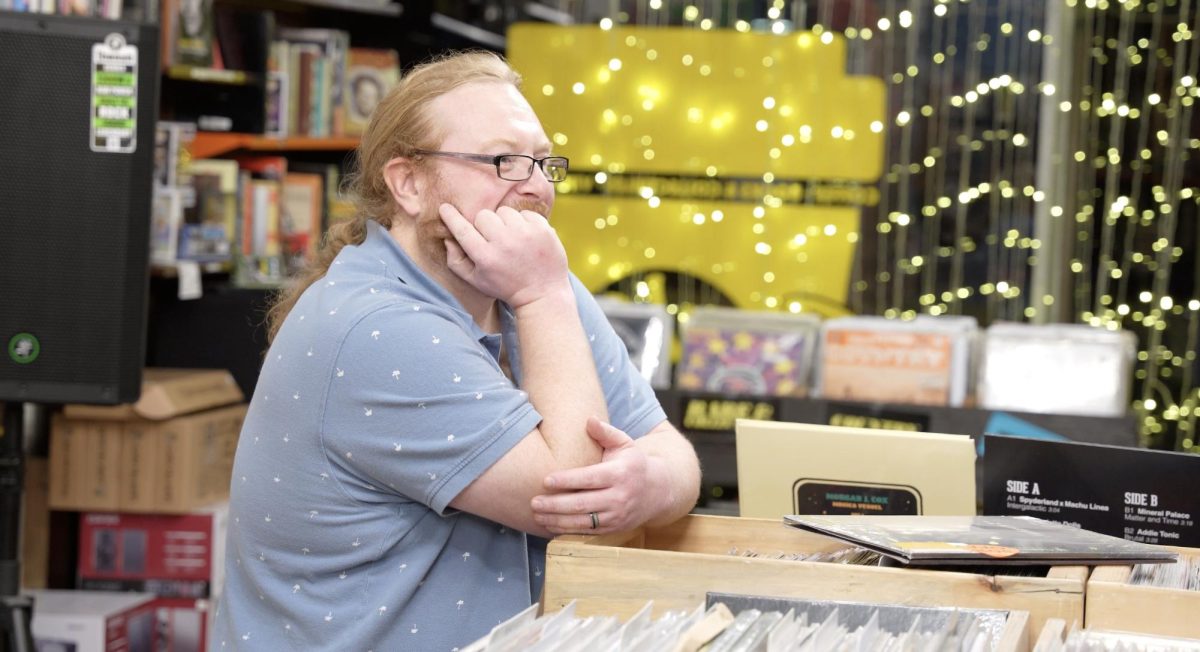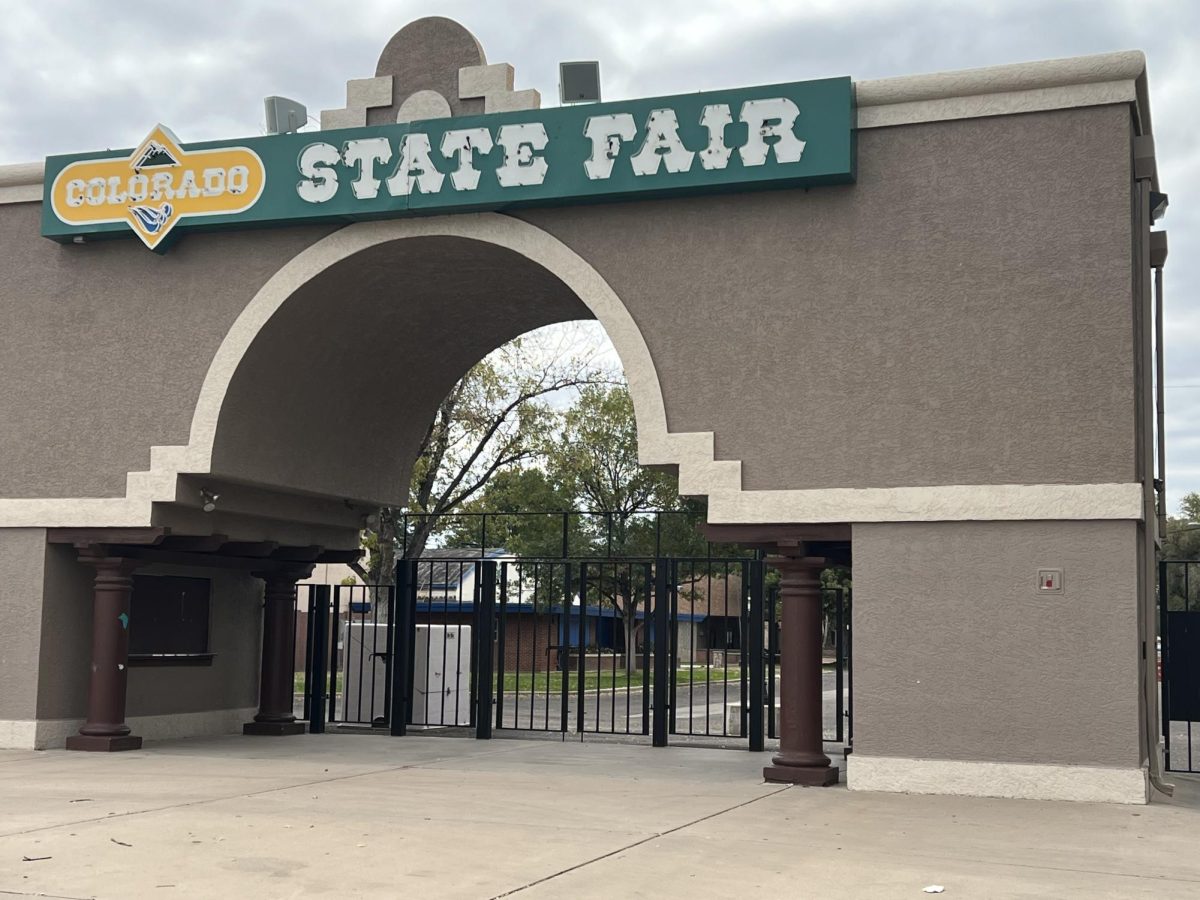Imagine growing up with a physical condition that causes seizures, while at the same time growing up poor, eating only government food on an Indian reservation. It may sound defeating, but don’t try bartering that to Native American author Sherman Alexie.
In fact, these hardships actually helped him become the award-winning author he is today.
“Poor and sick, poor and sick,” Alexie said laughingly and described his early life to a crowd of nearly 2,000 high school and college students last Monday at Massari Arena on the CSU-Pueblo campus.
Alexie was the third speaker of CSU-Pueblo’s second annual Distinguished Speakers series.

During his 45-minute discussion, Alexie featured some of the many obstacles he faced growing up in the Spokane Indian Reservation, which are featured in his Swedish Peter Pan Award-winning book, “The Absolutely True Diary of a Part-Time Indian.”
Diagnosed at 4 months old with Hdrocephalus, which is caused by excess fluid in the brain, Alexie joked that he became a “guinea pig” because it required him to become one of the first few people to have a shunt in his skull.
“The doctor’s drilled four burrows into my head,” Alexie described the shunt, which allowed the water to drain from his head.
Even though Alexie survived surgery, the condition caused many different abnormities for him as a child, as well as mild and severe seizures. Despite the physical barriers, Alexie was able to poke fun at these challenges.
Alexie said his nickname in elementary school was “globe,” referring to his large head size, and that children would often be in awe of it.
“Kids would look at my head and say I want to go there,” quipped Alexie. He related his head to the look of a globe with different geographical areas.
In the second grade, Alexie claimed that his feet were size 11 and his hands were the same size that they are at his current age. He joked that he would be able to palm two basketballs in his hands like an NBA basketball player.
Even when Alexie spoke about instances in his life where he suffered from seizures, he was able to humor the audience about the first time his seizures occurred.
“I looked like I was staring into the world,” Aelxie said as he starred into the crowd while demonstrating what his mild, or petite seizures, would look like.
Alexie’s first severe seizure was when he and his father sat at home and watched TV. When he started to violently shake, he said his father thought that he was dancing because he did not know his son was suffering from a seizure.
“I became the world’s youngest junkie after that,” Alexie said while he teased at the fact that he was put on various drugs that helped relieve his seizures.
Then Alexie moved on to talk about how difficult it was growing up on government-issued food, and how plain and how most of the food was very plain and looked odd.
“The cereal box was white and black and only said cereal on it,” Alexie said. “A whole chicken would come in a can and it looked like a full-baby alien face.”
Indeed, Alexie did not have the advantages that the “Type-A white people,” he continued. To improve his life, Alexie decided to leave the reservation to attend high school for better education.

However, when Alexie was away from his native people. It also meant he interacting with white students for the first time.
“They literally thought I was going to pull out a bow and arrow,” Alexie said jokingly, referring to the fact that students only related him to Indians from the old-western days.
Although this was tough for Alexie, he said that this was the best decision he made as it got him into college, and guided him to writing and poetry.
Alexie was able to answer questions from the audience after the discussion, specifically about racial identity.
“We are all technically Native Americans,” Alexie said. He derived to the fact that we all came from different regions before America.
He added that no one should have to worry about their race because we are all immigrants of this land.
Alexie added humor to his dialogue once more by saying that being Native American means that he happens to be a first-generation immigrant that is also indigenous. Because of this, he said that is ironic and makes him an “ironic, indigenous, first-generation immigrant.”
It just seems fitting from an author like Alexie to add a comedic punch to such a tough issue.
The next speaker in the series is Betty Anne Walters, a single mother who attended law school to defend her brother who was wrongful convicted of murder. Walter’s story is featured in the upcoming film, “Conviction,” starring Hillary Swank. She is scheduled to speak about her experience 7 pm in the Occhiato ballroom Nov. 7.







